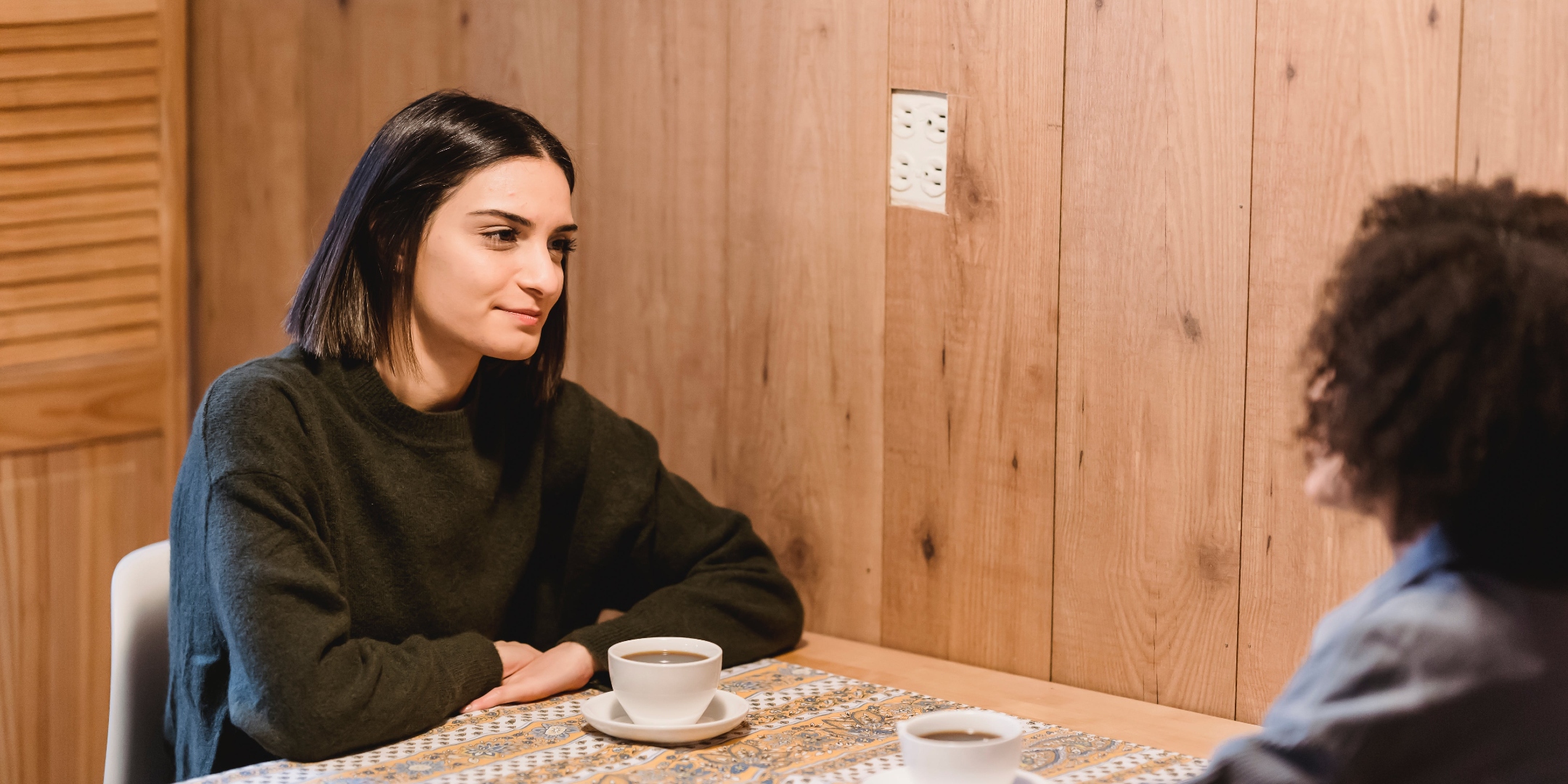Global Week Human Library

As part of the Global Week 2024 programme of activities, the Equality, Diversity and Inclusion (EDI) Unit and the University Library and Collections (ULC) Department will be running a Human Library, which is designed to build a positive interaction and safe space for conversation between readers and a ‘human book’.
The event will run from 27 – 29 February at Bill Bryson Library. We have a variety of human books available from across the world – all international students or staff at Durham – who are happy to share their stories and experiences.
You can sign up to have a conversation with one of our human books to find out more about their country, culture, heritage and lived experiences, or their experiences as an international student or staff member in the UK. Rules of engagement will also be in place to facilitate respectful conversations.
Meet our human books
Dorothy (Ireland)
I will chat about my life experiences as someone of confused nationality (Irish, British); and as a working mother. In both these cases, I have tried to balance several different identities at once. This has been challenging but I think it has also given me some valuable perspectives on life.
Harish (India - Western)
I will share my experience, tracing my journey from the secluded landscapes of a remote area to Jaisalmer, the last railway station in western India. I'll discuss the challenges of growing up in a small town with just one high school and one college and how this path led me to pursue research in Physics. Exploring the difficulties of life in the harsh desert and its unique lifestyle, I'll narrate my journey from India to Israel, where I spent five years, and my subsequent move to Durham.
Mel (Philippines)
Let’s have a chat about the Philippines, a country of more than 7,600 islands with strong Spanish and American influences, among others. I’m aware I’ve been shaped by a hodgepodge of cultures and traditions; but it was only when I began living abroad as an international student and later as a migrant worker when I became more cognisant of my Filipino identity as well as the various Filipino stereotypes—the good, the bad and the ugly. Now that I’m raising my son in a multicultural household where baked beans are considered more of a staple food than rice, I’m trying my best to ensure that my child grows up knowing and celebrating his Filipino heritage.
Molly (USA)
I’m really happy to chat about my experiences of living in different countries and talk about my successes - and failures - of managing a hidden disability in different cultures. I was born in the USA and have lived in the US, Australia, Malta, England and short time in Malawi. I've worked as a dietitian, a senior sales rep in biotech/pharmaceutical sales and in film production and currently I’m a project manager.
Päivi (Finland)
Chat with me about identify and language and the importance of protecting language and culture. In the global world where two billion people share English as a language for communication, I would never give up my mother tongue spoken by only 5 million people. On the 28th February, the Finns celebrate our national epic Kalevala. It is based on a collection of oral folk tales, which survived through generations as songs. Only the publications of it, less than two centuries ago (in 1849), cemented how Finnish language should be written down.
Saujanya (India and UAE)
I will be speaking about my Indian culture and heritage and how I stayed connected to it growing up in Dubai, in the Middle East. I will also speak about my experience as an international student in the UK who grew up in an international city and how all of it shaped my identity.
Shreya (India - South)
I’d like to share my story with you; it's about choosing a different path, challenging stereotypes, and enjoying the journey of finding my own way. It's not just about getting a degree; it's about shaping my life on my own terms. I'm a 26-year-old woman from South India, a place often seen as traditional and conservative. In my community, it's commonly believed that a woman's life revolves around education, marriage, kids, and family. But my life is proof that there's more to it. I'm passionate about what I study and I'm really happy with my decision to come to Durham for this fresh start.
Tony (Mozambique)
Seeking refuge in the UK as I ran away from many parts of my identity that I internalized as wrong, little did I know that over many years, shackles would be broken, and old wounds would open. Coming to the UK for university ended up being a transformational experience, as the world forced me to deal with traumas to grow and understand myself as the person I am today. The story of a Black LGBT+ child afraid to live their truth, that had had enough, and finally had the opportunity to explore a world they had never felt safe to do so.
How do I sign up for the event?
Visit our Eventbrite booking system for the day you wish to attend to select a human book and a suitable timeslot. You will then receive confirmation of your booking, along with the rules of engagement for the event.
If you have any queries relating to the Human Library, please contact edi.team@durham.ac.uk


/prod01/prodbucket01/media/training/BBL6-3492X1127.jpg)